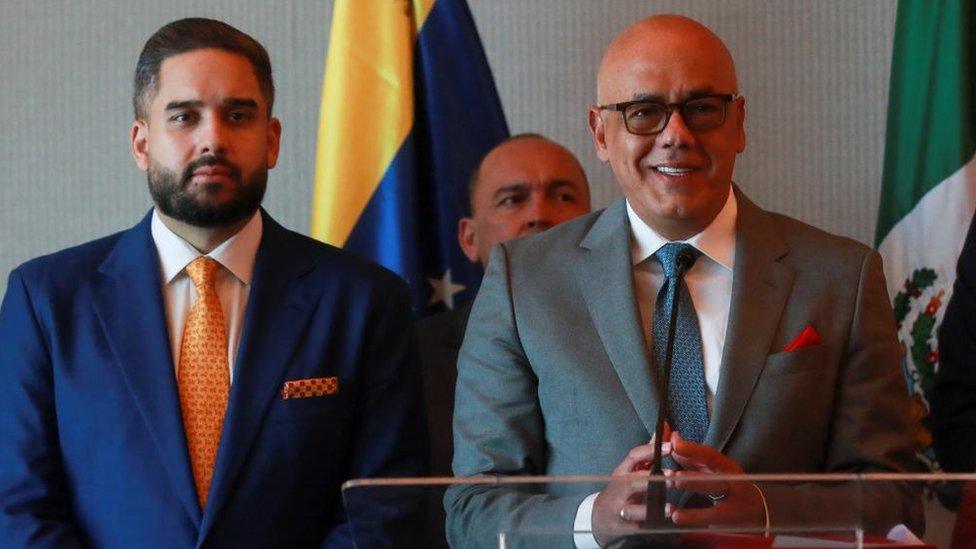Venezuela crisis: Government and opposition to resume talks
- Published
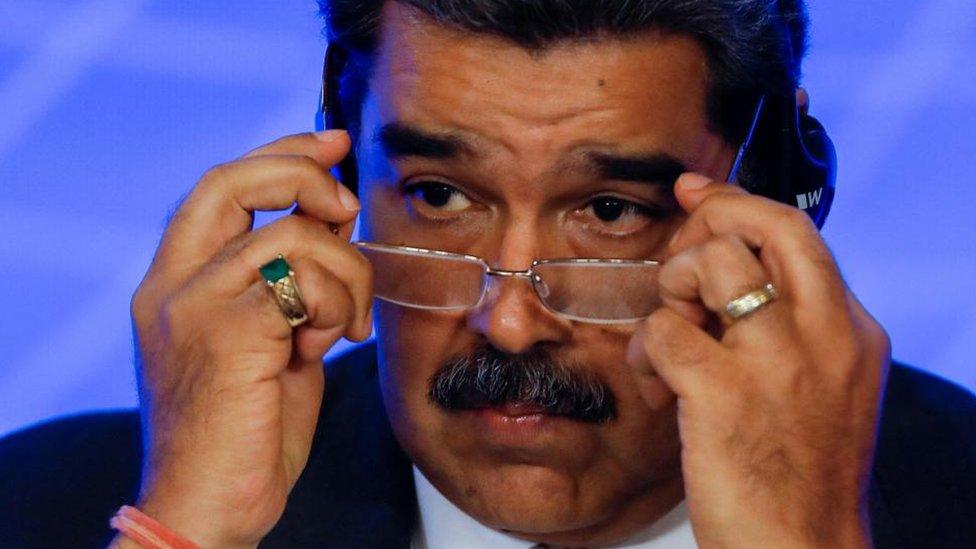
Nicolás Maduro has been in power since 2013 when he succeeded his mentor, Hugo Chávez
The Venezuelan government and the opposition are due to restart talks later on Tuesday after a suspension of almost a year, the two sides have announced in a joint statement.
The negotiations are aimed at reaching an agreement on how to end Venezuela's protracted political crisis.
President Nicolás Maduro has suggested a deal is imminent.
The talks will be held in the capital of Barbados, Bridgetown, and facilitated by Norway.
Previous attempts at finding a way out of the political deadlock have stalled and while Mr Maduro struck an optimistic note on Monday, he provided little detail.
"We are on the verge of signing new agreements with the opposition, agreements beneficial for peace and the upcoming election," he said, referring to presidential elections due to be held in Venezuela in 2024.
Mr Maduro has been in power since 2013 and was most recently re-elected in 2018 in a poll widely dismissed as neither free nor fair.
During his time in office, his socialist PSUV party has further tightened its grip on key institutions, including much of the judiciary, the electoral council and the supreme court.
Attempts to topple Mr Maduro - such as that of the then-leader of the National Assembly, Juan Guaidó, who declared himself interim president in 2019 and set up a rival government which was recognised by more than 50 countries - have failed.
Frustrated by Mr Guaidó's lack of progress in dislodging Mr Maduro, the opposition dissolved the shadow government he led at the end of 2022.
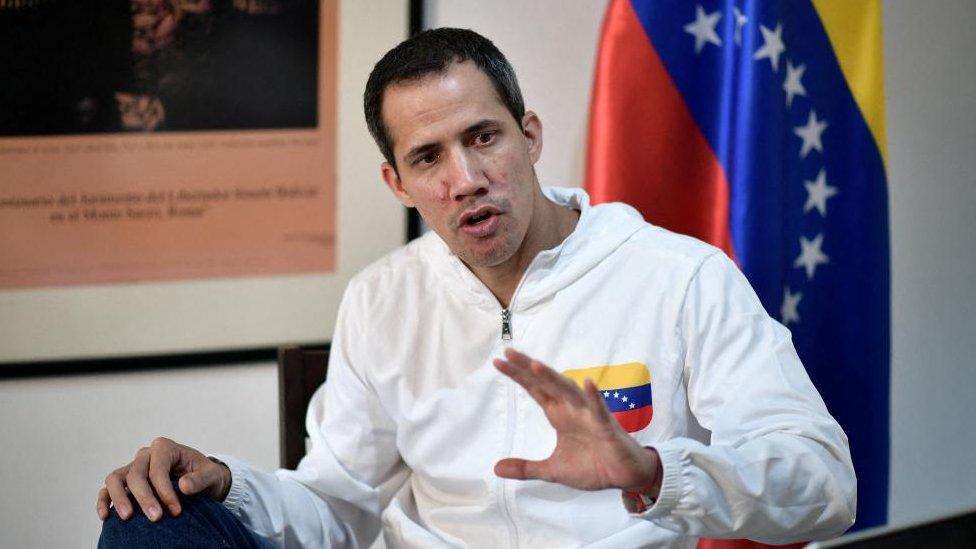
The Venezuelan authorities issued an arrest warrant for Juan Guaidó earlier this month
Mr Guaidó has been living in exile in the United States since April and is unlikely to return to Venezuela anytime soon as the attorney-general, a close ally of President Maduro, has issued a warrant for his arrest.
Mr Maduro, meanwhile, is expected to seek another term in office next year, although he has not yet officially announced his candidacy.
Opposition parties, which have boycotted past presidential elections because many of its candidates were either in jail or had been barred from running, are planning to take part in 2024 even though they say that the odds are stacked against them.
They will be holding a primary on Sunday to choose a unity candidate from a field of 10 to take on Mr Maduro.
In June, the favourite to win the opposition primary, María Corina Machado, was barred from holding public office for 15 years by the comptroller-general, another ally of President Maduro.
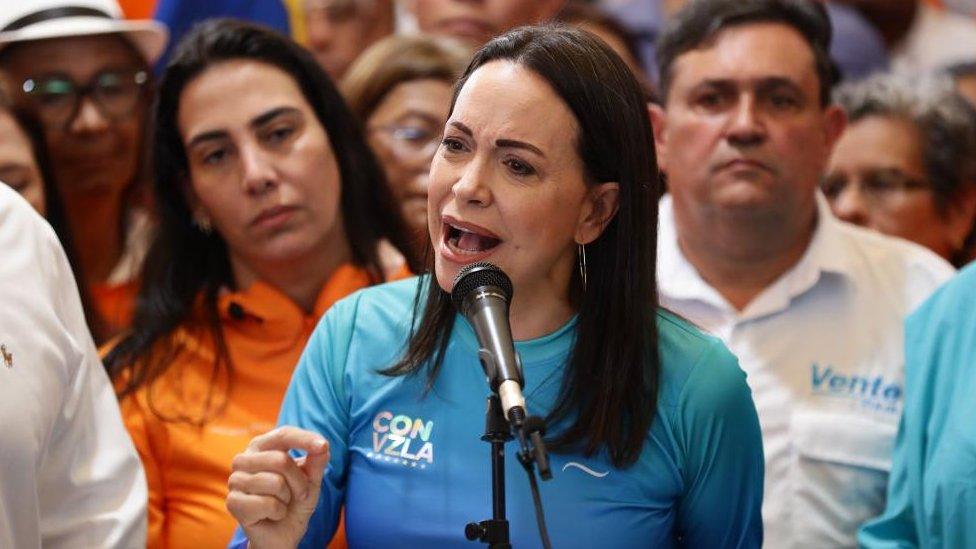
María Corina Machado is running in the primary to choose a candidate to run against Mr Maduro
Ms Machado has stayed in the race to become the opposition's unity candidate despite the ban, arguing that if she is chosen, she will aim to create enough momentum for the Maduro government to drop the ban.
Creating the conditions for free and fair elections are reportedly one of the issues US envoys have been pushing for in recent talks with Maduro government representatives in Qatar.
The Qatar talks are thought to have laid the groundwork for the resumption of negotiations between the Venezuelan opposition and the Maduro government on Tuesday in Barbados.
While the Maduro government frequently bashes the US in public, labelling it an "imperialist aggressor" and blaming it for Venezuela's dire economic state, Mr Maduro is keen to come to an agreement with the Biden administration in order to have US sanctions on Venezuela relaxed.
The US, in turn, has a vested interest in the crisis in Venezuela easing as the dire state of the economy in the Andean country has driven more than seven million to emigrate, with many heading for the United States.
An unnamed US official told the Washington Post that the Biden administration was "prepared to provide sanctions relief in response to concrete actions toward competitive elections".
But no concrete details of what may be in the deal have been officially released so far.
Related topics
- Published31 December 2022
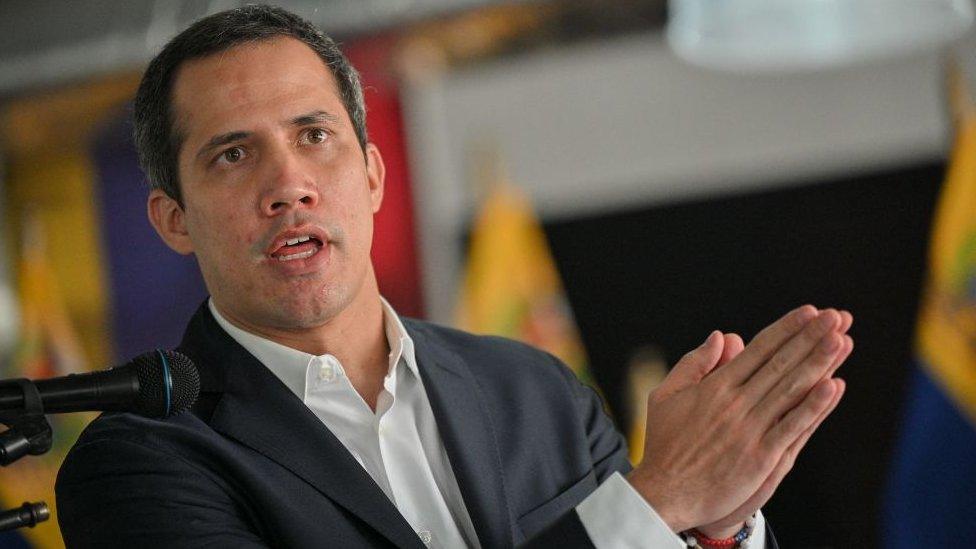
- Published27 November 2022
